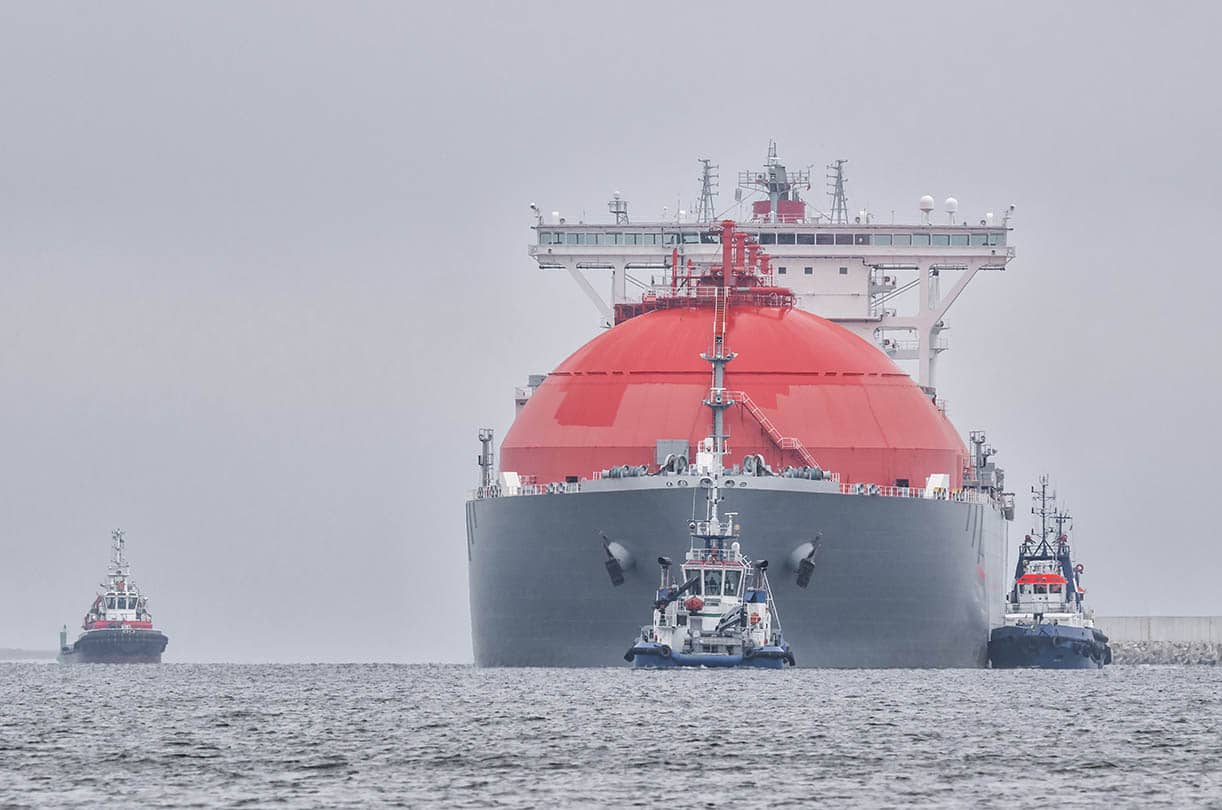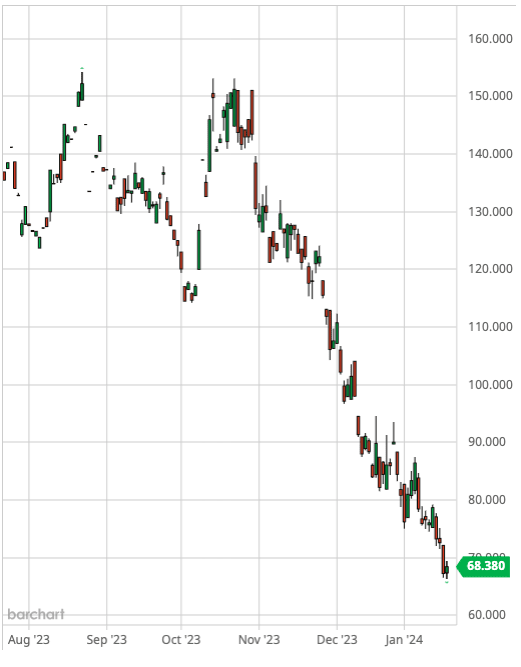"The energy crisis is over" as UK, European Gas Prices Respond to Rising Supply
- Written by: Gary Howes

Image © Adobe Images
The "energy crisis is over" declares Julius Baer, the Swiss bank, in a new research note covering the outlook for European energy prices.
The call comes amidst an ongoing decline in European and UK natural gas benchmarks, which signal easier times ahead for consumers and businesses alike following the shock of recent years.
"The European energy complex remains in deflation mode. Natural gas prices slide lower with the outlook for seasonally mild weather and with Asian demand for overseas cargoes remaining comparably muted," says Norbert Rücker, Head of Economics & Next Generation Research at Julius Baer.
Rücker says the market is also looking forward to a "supply abundance", which leads him to say "the energy crisis is over."
Above: UK natural gas for March delivery. Source: Barchart.
The surge in UK and Eurozone gas prices was a key driver of multi-decade highs in inflation that hit households and businesses as well as government budget balances.
The cutting off of Russian gas following Russia's invasion of Ukraine deprived European markets of a cheap supplier, prompting traders to scramble for alternative supplies.
"Europe successfully adjusted to a world without meaningful Russian supplies largely thanks to market forces. The global natural gas market is turning into a buyers' market," says Rücker.
Julius Baer says energy markets are adjusting to the scenario of full storage past the winter season and overseas cargoes seeking a home at discounts by mid-year, which calls for lower prices.
UK gas for March delivery has fallen to £68/therm, having been as high as 140 last October. The fall has prompted expectations for cuts in household energy bills in April and July, which some economists say could lead to headline inflation falling to 2.0% by the start of the second quarter.
Julius Baere expects gas prices to face further headwinds as the weather outlook points to seasonally mild temperatures later this month, while the near-term outlook is for solid wind generation and reduced buyers' competition for overseas natural gas supplies with Asia.
China's imports are robust but remain below previous years’ peaks, and Japan’s imports are below seasonal levels, given well-filled domestic storage.
The disruption of shipping in the Red Sea owing to Houthi rebel attacks is meanwhile expected to offer little concern as it merely adds to floating storage.
"Even though this means that more supplies are stuck at sea, the fundamental impact is negligible given the globally ample onshore storage," says Rücker.
New export terminals for Liquified Natural Gas enter service this year before substantial capacities come online in the US, Qatar, Russia, and Canada beyond 2025.
"We believe that prices are in the process of adjusting to the scenario of full storage past the winter season and overseas cargoes seeking a home in Europe at discounts by mid-year," says Rücker.




